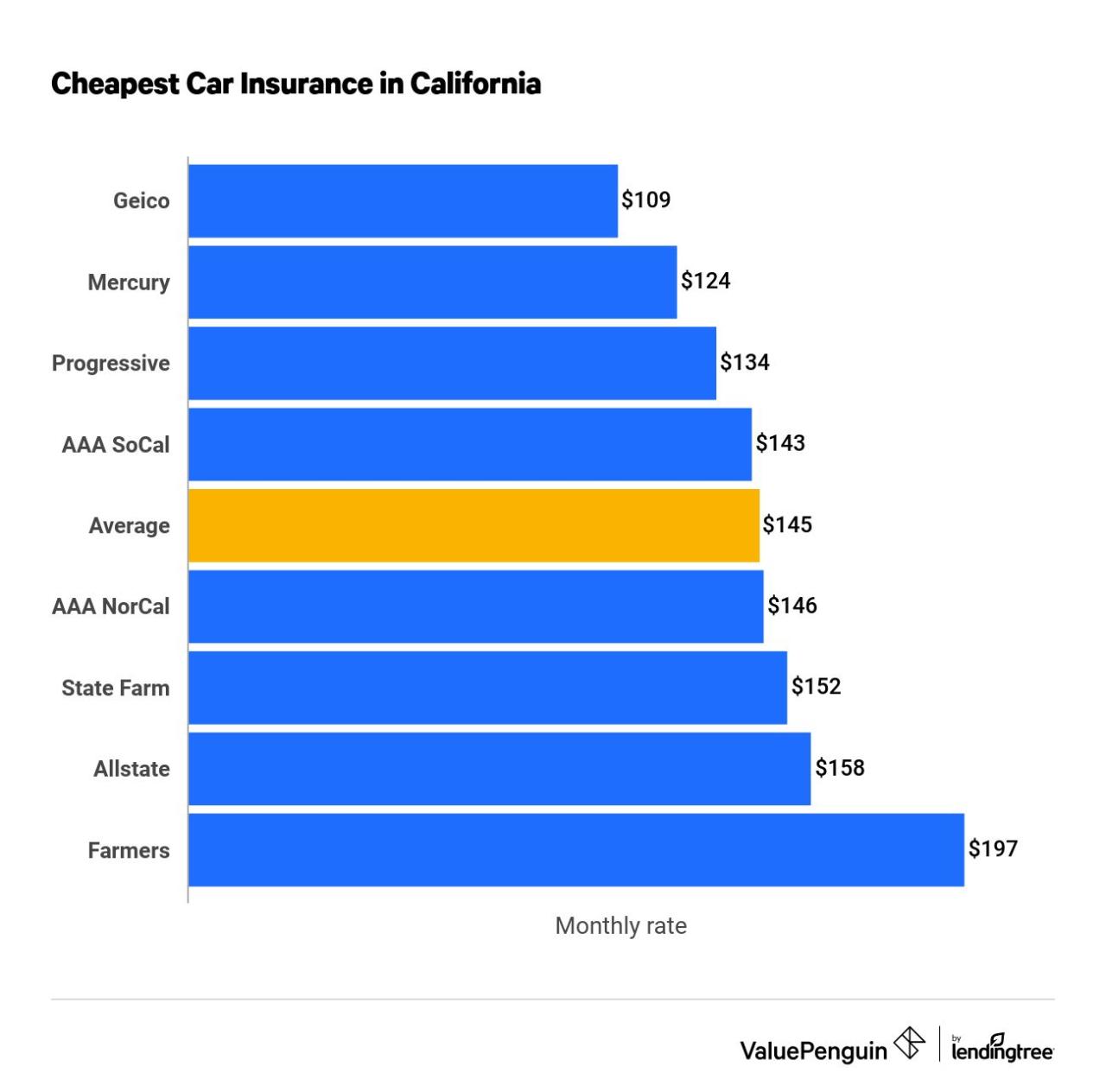In today’s competitive insurance market, securing the most affordable coverage can feel like a daunting task. Navigating the complexities of insurance quotes, with their myriad factors and terms, often leaves consumers feeling overwhelmed. But fear not! This comprehensive guide will demystify the process, empowering you to find the cheapest insurance quotes that fit your unique needs.
We’ll delve into the intricacies of insurance quotes, exploring different types, key influencing factors, and essential terms. From comparing online quote tools to negotiating premiums, we’ll equip you with the knowledge and strategies to secure the best possible deals.
Understanding Insurance Quotes

Insurance quotes are essential for understanding the cost of coverage and finding the best policy for your needs. They are estimates of the premium you will pay for insurance coverage, based on various factors specific to you and your situation. Understanding how insurance quotes work can help you make informed decisions about your insurance needs.
Types of Insurance Quotes
Insurance quotes are available for various types of insurance, each tailored to different needs and risks.
- Life Insurance: This type of insurance provides financial protection to your loved ones in the event of your death. The quote will depend on factors like your age, health, lifestyle, and the amount of coverage you require.
- Health Insurance: This coverage helps pay for medical expenses, including doctor visits, hospital stays, and prescription drugs. Health insurance quotes vary based on your age, health history, location, and the type of plan you choose.
- Auto Insurance: This insurance covers damage to your vehicle and liability in case of an accident. Auto insurance quotes are influenced by factors such as your driving record, age, vehicle type, location, and coverage limits.
- Home Insurance: This coverage protects your home and belongings against damage from events like fire, theft, or natural disasters. Home insurance quotes are affected by your location, home value, coverage limits, and security features.
Factors Influencing Insurance Quote Prices
Several factors influence the price of an insurance quote, making it crucial to understand how they impact your premium.
- Age: Younger drivers often pay higher auto insurance premiums due to higher risk. Similarly, younger individuals may pay higher life insurance premiums due to a longer life expectancy. Conversely, older individuals may pay higher health insurance premiums due to a higher likelihood of health issues.
- Driving Record: A clean driving record with no accidents or traffic violations will result in lower auto insurance premiums. Conversely, a history of accidents or violations will increase your premium.
- Health History: Your health history is a major factor in determining your health insurance premium. Individuals with pre-existing conditions or a history of health issues may pay higher premiums. Conversely, individuals with good health and no significant health history may qualify for lower premiums.
- Location: The location where you live can influence your insurance premiums. For example, areas with higher crime rates or more frequent natural disasters may have higher home and auto insurance premiums.
Common Insurance Quote Terms
Understanding common insurance quote terms is essential for making informed decisions about your coverage.
- Deductible: This is the amount you pay out of pocket before your insurance coverage kicks in. A higher deductible usually means a lower premium, while a lower deductible means a higher premium.
- Premium: This is the regular payment you make for your insurance coverage. The premium amount is determined by factors like your risk profile, coverage limits, and deductible.
- Coverage: This refers to the types of risks your insurance policy covers. Different insurance policies offer varying levels of coverage, which can affect the premium.
Finding the Cheapest Insurance Quote
Securing the most affordable insurance policy requires careful consideration and a strategic approach. Navigating the insurance market can be overwhelming, with numerous providers offering a wide range of plans and coverage options. This guide will provide you with the tools and knowledge to effectively compare insurance quotes and identify the most cost-effective solution for your needs.
Comparing Insurance Quote Comparison Websites
Insurance quote comparison websites have revolutionized the way consumers shop for insurance. These platforms allow you to easily compare quotes from multiple providers in one place, streamlining the process and saving you valuable time.
While many websites offer similar services, there are key differences to consider. Here’s a comparison of some popular platforms:
- Pros:
- Convenience: Easily compare quotes from multiple providers in one place.
- Time-saving: Streamlines the quote-gathering process, eliminating the need to contact each provider individually.
- Transparency: Provides clear and concise information about coverage options and pricing.
- Cons:
- Limited provider selection: Some websites may not include all major insurance providers in their network.
- Potential bias: Some websites may prioritize certain providers based on commission structures or partnerships.
- Lack of personalized advice: Online tools may not offer personalized guidance or recommendations.
Advantages and Disadvantages of Using Online Insurance Quote Tools
Online insurance quote tools offer several advantages, including convenience, speed, and transparency. However, it’s essential to understand their limitations and potential drawbacks.
- Advantages:
- Convenience: Easily access quotes from multiple providers anytime, anywhere.
- Speed: Receive quotes quickly and efficiently, often within minutes.
- Transparency: Access detailed information about coverage options, premiums, and deductibles.
- Cost-effective: Eliminate the need for phone calls and appointments, saving time and money.
- Disadvantages:
- Limited personalization: Online tools may not fully capture your individual needs and circumstances.
- Potential for inaccurate information: Input errors or incomplete information can lead to inaccurate quotes.
- Lack of human interaction: Online tools may not provide the personalized guidance and support of a human insurance agent.
Getting Insurance Quotes from Multiple Providers
To ensure you find the cheapest insurance quote, it’s crucial to obtain quotes from multiple providers. This allows you to compare prices, coverage options, and customer service.
- Step 1: Gather your information. Before contacting insurance providers, have your personal details readily available, including:
- Your driver’s license number
- Your Social Security number
- Your vehicle identification number (VIN)
- Your driving history
- Your insurance history
- Step 2: Use insurance quote comparison websites. Start by utilizing online tools to compare quotes from multiple providers. This will give you a good baseline understanding of pricing and coverage options.
- Step 3: Contact insurance providers directly. After using online tools, reach out to insurance providers directly to discuss your specific needs and obtain personalized quotes.
- Step 4: Compare quotes and coverage options. Carefully review each quote, paying attention to:
- Premium amount
- Deductibles
- Coverage limits
- Exclusions
- Customer service reputation
- Step 5: Choose the best policy. Select the policy that offers the most comprehensive coverage at the most affordable price.
Key Considerations for Insurance Quotes

Getting the cheapest insurance quote might seem like the best approach, but it’s crucial to understand your specific needs and the implications of choosing the lowest price without considering coverage details. A comprehensive understanding of your insurance needs is essential before comparing quotes, as it helps you make informed decisions about your coverage and avoid potential financial pitfalls.
The Importance of Understanding Your Insurance Needs
Before comparing quotes, it’s crucial to assess your individual insurance needs. This involves understanding the potential risks you face and the level of coverage you require to protect yourself and your assets. For instance, a homeowner with a valuable art collection may need higher coverage limits than someone with standard furnishings. Similarly, a business owner with a large inventory might require specialized coverage for business interruption or product liability.
Potential Risks of Choosing the Cheapest Quote
Choosing the cheapest quote without carefully reviewing the coverage details can lead to inadequate protection in case of an unexpected event. A policy with lower premiums might offer limited coverage, leaving you financially vulnerable in the event of a claim.
For example, a cheap auto insurance policy might have a low deductible, meaning you’d pay a significant amount out of pocket in case of an accident. This could strain your finances and potentially lead to financial hardship.
Factors Impacting Long-Term Insurance Costs
While getting the cheapest quote might seem appealing initially, several factors can impact your long-term insurance costs.
- Claims History: Filing claims can increase your premiums, as insurers perceive you as a higher risk. This is why it’s important to avoid unnecessary claims and consider the potential impact on your future insurance costs.
- Policy Changes: Changes to your policy, such as adding or removing coverage, can affect your premiums. Regularly reviewing your policy and making adjustments as needed can help manage your insurance costs.
- Market Fluctuations: The insurance market is subject to fluctuations in pricing based on factors such as inflation, interest rates, and claims frequency. These fluctuations can affect your premiums over time.
Tips for Saving on Insurance Quotes
Navigating the world of insurance quotes can be overwhelming, but understanding how to save money on premiums can significantly impact your budget. There are various strategies you can employ to reduce your insurance costs, from maintaining a good driving record to shopping around for discounts. By implementing these tips, you can find the most affordable insurance coverage that meets your needs.
Strategies for Lowering Insurance Premiums
Here are some proven methods to lower your insurance premiums:
| Tip | Explanation |
|---|---|
| Maintain a good driving record | Insurance companies consider your driving history a major factor in determining your premium. Avoiding accidents, traffic violations, and driving under the influence can significantly lower your rates. |
| Bundle insurance policies | Combining multiple insurance policies, such as auto and homeowners or renters insurance, with the same insurer often results in discounts. This bundling strategy can lead to substantial savings on your overall insurance costs. |
| Increase deductibles | Your deductible is the amount you pay out-of-pocket before your insurance coverage kicks in. Increasing your deductible, which is the amount you pay before insurance covers the rest, can lower your premium. However, make sure you can afford to pay the higher deductible if you need to file a claim. |
| Shop around for discounts | Insurance companies offer various discounts, and comparing quotes from multiple insurers can help you find the best deals. Some common discounts include good student, safe driver, multi-car, and even discounts for homeowners who install security systems. |
Common Insurance Discounts
Many insurance companies offer a range of discounts to their policyholders. Here are some common discounts you can inquire about:
- Good Student Discount: This discount is available to students who maintain a high GPA or excellent academic performance.
- Safe Driver Discount: This discount is awarded to drivers with a clean driving record, free of accidents or traffic violations.
- Multi-Car Discount: Insurers often offer discounts for insuring multiple vehicles under the same policy.
- Anti-theft Device Discount: Installing anti-theft devices, such as alarms or tracking systems, can qualify you for a discount on your car insurance.
- Homeowner Discount: Homeowners often receive a discount on their car insurance if they also have a homeowner’s policy with the same insurer.
- Loyalty Discount: Many insurers reward long-term customers with loyalty discounts for their continued business.
Common Insurance Quote Misconceptions
Navigating the world of insurance quotes can be confusing, and many misconceptions surrounding them can lead to misguided decisions. Understanding the nuances of how insurance companies determine premiums and the factors influencing quote variations is crucial for making informed choices.
The Cheapest Quote Isn’t Always the Best
It’s a common misconception that the cheapest insurance quote is always the best option. While price is an important factor, it’s not the only consideration. The cheapest quote might come with lower coverage limits, higher deductibles, or exclusions that could leave you financially vulnerable in the event of a claim.
Choosing the right insurance policy involves a balance between affordability and adequate coverage.
Insurance Companies Don’t Just Look at Your Driving Record
Many believe that insurance premiums are solely based on driving history. However, insurance companies consider a wide range of factors to determine premiums, including:
- Credit Score: A good credit score can often translate to lower insurance premiums, as it reflects financial responsibility.
- Age and Gender: Younger drivers and males generally pay higher premiums due to increased risk factors.
- Location: Premiums vary based on geographic location, considering factors like traffic density, crime rates, and weather conditions.
- Vehicle Type: The make, model, and year of your vehicle influence premiums, with luxury or high-performance vehicles often attracting higher rates.
- Driving History: While driving record is a significant factor, it’s not the only one.
Higher Premiums Can Sometimes Be Beneficial
While it’s tempting to always seek the lowest premium, there are situations where a higher premium might be beneficial:
- Increased Coverage: A higher premium may offer more comprehensive coverage, protecting you against a wider range of risks and potentially saving you significant costs in the event of a major claim.
- Lower Deductible: Opting for a higher premium can sometimes mean a lower deductible, reducing your out-of-pocket expenses in the event of a claim.
- Specialized Coverage: For specific needs, such as high-value possessions or unique risks, a higher premium may be necessary to secure specialized coverage.
Insurance Quote Comparison Tools

Insurance quote comparison websites have revolutionized the way people shop for insurance. These platforms allow you to quickly and easily compare quotes from multiple insurers, saving you time and potentially money. They can be invaluable tools in finding the cheapest insurance quote.
Popular Insurance Quote Comparison Websites
The following table compares some of the most popular insurance quote comparison websites, highlighting their key features, ease of use, accuracy, and customer support.
| Website | Features | Ease of Use | Accuracy | Customer Support |
|---|---|---|---|---|
| The Zebra | Compares quotes from over 100 insurers for car, home, renters, and motorcycle insurance. Offers personalized recommendations and discounts. | Easy to use interface, straightforward quote process. | Known for its comprehensive and accurate quote comparisons. | Offers 24/7 customer support via phone, email, and chat. |
| Insurify | Compares quotes from over 20 insurance companies for car, home, renters, and motorcycle insurance. Offers personalized recommendations and discounts. | User-friendly interface, quick and easy quote process. | Provides accurate and comprehensive quote comparisons. | Offers 24/7 customer support via phone, email, and chat. |
| Policygenius | Compares quotes from over 20 insurance companies for life, health, home, and renters insurance. Offers personalized recommendations and discounts. | Intuitive interface, easy to navigate. | Known for its accuracy and comprehensive quote comparisons. | Provides 24/7 customer support via phone, email, and chat. |
| QuoteWizard | Compares quotes from over 100 insurance companies for car, home, renters, and motorcycle insurance. Offers personalized recommendations and discounts. | Easy to use interface, straightforward quote process. | Provides accurate and comprehensive quote comparisons. | Offers 24/7 customer support via phone, email, and chat. |
| Compare.com | Compares quotes from over 100 insurance companies for car, home, renters, and motorcycle insurance. Offers personalized recommendations and discounts. | User-friendly interface, quick and easy quote process. | Provides accurate and comprehensive quote comparisons. | Offers 24/7 customer support via phone, email, and chat. |
Using an Insurance Quote Comparison Tool
To use an insurance quote comparison tool, you typically need to provide some basic information, such as your name, address, date of birth, and driving history. The tool will then generate a list of quotes from different insurance companies. You can then compare the quotes side-by-side to find the best deal.
For example, let’s say you are looking for car insurance. You can enter your information into a comparison tool like The Zebra. The tool will then provide you with a list of quotes from different insurance companies. You can then compare the quotes based on price, coverage, and other factors.
Negotiating Insurance Quotes

Securing the most affordable insurance premiums often involves more than just comparing quotes online. You can leverage negotiation tactics to potentially lower your rates, especially if you’re a loyal customer or have a clean driving record.
Negotiation Strategies
Negotiating with insurance companies can be an effective way to reduce your premiums. Here are some strategies you can employ:
- Bundle Your Policies: Combining your auto, home, and other insurance policies with the same company can lead to significant discounts. Insurance companies often offer bundled discounts to incentivize customers to consolidate their insurance needs with them.
- Shop Around and Leverage Competition: Get quotes from multiple insurance companies and use the lowest quote as leverage during negotiations. Highlight the lower offer and ask your current insurer to match or beat it.
- Improve Your Credit Score: In some states, insurers use credit scores to determine premiums. A higher credit score can translate into lower rates.
- Negotiate Payment Terms: Explore options for paying your premium annually instead of monthly. This could result in a discount, as insurance companies often offer incentives for paying premiums in full.
- Consider Higher Deductibles: Increasing your deductible, the amount you pay out-of-pocket before your insurance coverage kicks in, can potentially reduce your premium. However, carefully consider the financial impact of a higher deductible before making this decision.
- Ask About Discounts: Inquire about any available discounts, such as safe driver discounts, good student discounts, or discounts for anti-theft devices.
- Be Prepared to Switch: If your current insurer isn’t willing to negotiate, be prepared to switch to a different company that offers better rates.
Understanding Your Policy Terms
Before entering negotiations, it’s crucial to thoroughly understand your insurance policy terms.
- Coverage Limits: Review the coverage limits for each type of insurance, such as liability limits for auto insurance or dwelling coverage for home insurance.
- Deductibles: Understand the deductible amounts for different types of claims.
- Exclusions: Be aware of any specific events or circumstances that are not covered by your policy.
- Renewal Terms: Familiarize yourself with the terms of your policy renewal, including any potential premium increases.
Insurance Quote Trends
The insurance industry is constantly evolving, influenced by factors like technological advancements, economic conditions, and changing consumer behavior. These factors have a significant impact on insurance pricing and availability, shaping the trends we see today. Understanding these trends can help consumers make informed decisions about their insurance needs.
Impact of Technology on Insurance Quotes
Technology has revolutionized the way insurance quotes are generated and accessed. Here’s how:
- Online Quote Platforms: Websites and mobile apps have made it easier than ever to compare quotes from multiple insurers. These platforms use algorithms to analyze customer data and provide personalized quotes in real-time.
- Data Analytics: Insurers leverage data analytics to assess risk more accurately. By analyzing driving records, credit scores, and other factors, they can offer more competitive and customized quotes.
- Telematics: Telematics devices, such as those found in connected cars, track driving behavior and provide real-time data to insurers. This data allows insurers to offer discounts based on safe driving habits.
- Artificial Intelligence (AI): AI-powered chatbots and virtual assistants are increasingly being used to answer customer queries and guide them through the quote process, making it more efficient and convenient.
Predictions about Future Trends in the Insurance Industry
The insurance industry is expected to continue its digital transformation, with several trends shaping the future:
- Personalized Pricing: Insurers will further refine their pricing models to offer even more customized quotes based on individual risk profiles and behavior. This will lead to more competitive pricing and greater transparency.
- Increased Use of Predictive Analytics: Insurers will increasingly rely on predictive analytics to anticipate risks and offer proactive solutions. This could involve personalized risk management advice and customized insurance products.
- Rise of Insurtech Companies: Innovative startups are disrupting the traditional insurance industry with new technologies and business models. These companies are offering more flexible and transparent insurance options, often focusing on niche markets.
- Growing Importance of Customer Experience: Customer experience will become a key differentiator in the insurance industry. Insurers will focus on providing seamless digital experiences, personalized communication, and quick claims processing.
Insurance Quote Resources
Navigating the world of insurance quotes can be overwhelming, but there are numerous resources available to help you find the best coverage at the most competitive price. From reputable organizations to government websites and consumer protection agencies, a wealth of information is at your fingertips.
Reputable Insurance Organizations and Resources
These organizations offer valuable information and guidance on insurance policies, quotes, and consumer rights:
- National Association of Insurance Commissioners (NAIC): The NAIC is a non-profit organization that provides information on state insurance regulations and consumer protection. You can find resources on insurance topics, including quotes, on their website.
- Insurance Information Institute (III): The III is a non-profit organization that provides information on insurance topics, including quotes, and consumer protection. They offer educational materials and resources on a wide range of insurance issues.
- Consumer Reports: This consumer advocacy organization provides independent ratings and reviews of insurance companies and policies. They also offer tips for getting the best insurance quotes.
- J.D. Power: J.D. Power conducts surveys and ratings of insurance companies, providing insights into customer satisfaction and claims handling. Their website includes information on insurance quotes and pricing.
Government Websites Offering Insurance Information
Government agencies provide valuable resources and information on insurance policies and consumer rights:
- Federal Trade Commission (FTC): The FTC offers resources and advice on consumer protection issues, including insurance scams and fraudulent quotes.
- National Insurance Crime Bureau (NICB): The NICB provides information on insurance fraud and consumer protection issues related to insurance claims. Their website includes resources on avoiding insurance scams and getting accurate quotes.
- State Insurance Departments: Each state has an insurance department that regulates insurance companies and enforces consumer protection laws. You can find contact information for your state’s insurance department on the NAIC website.
Contact Information for Consumer Protection Agencies
If you encounter problems with an insurance company or believe you have been the victim of insurance fraud, you can contact consumer protection agencies for assistance:
- Federal Trade Commission (FTC): You can file a complaint with the FTC online or by phone. Their website also offers resources on consumer protection issues related to insurance.
- National Association of Insurance Commissioners (NAIC): The NAIC has a consumer hotline that you can call for assistance with insurance-related issues. They also offer online resources and complaint forms.
- State Insurance Departments: Each state has an insurance department that investigates consumer complaints and enforces insurance laws. You can find contact information for your state’s insurance department on the NAIC website.
Final Summary
Armed with this knowledge, you’ll be well-prepared to navigate the insurance landscape, confident in your ability to find the cheapest quotes without sacrificing essential coverage. Remember, securing the most affordable insurance doesn’t have to be a gamble; it’s about understanding your options, leveraging available resources, and making informed decisions. Embrace the power of knowledge and take control of your insurance journey.

